Upgrade your storage hub to the power of FLASH
Mechanical hard disk drives (HDD) are typically used for mass storage, NAS enclosures included. They offer the widest range of capacities, the best value in terms of $ per GB, and decent performance. Solid-state drives (SSD) are the next step-up, more than doubling bandwidth (and price). An advantage of using SSDs inside a NAS is the lack of any moving parts, longer life span, and zero vibrations and noise emitted from each drive. Here are my favorite SSDs for use inside NAS.
Source: Seagate
Seagate IronWolf 125
Best SSD for NAS
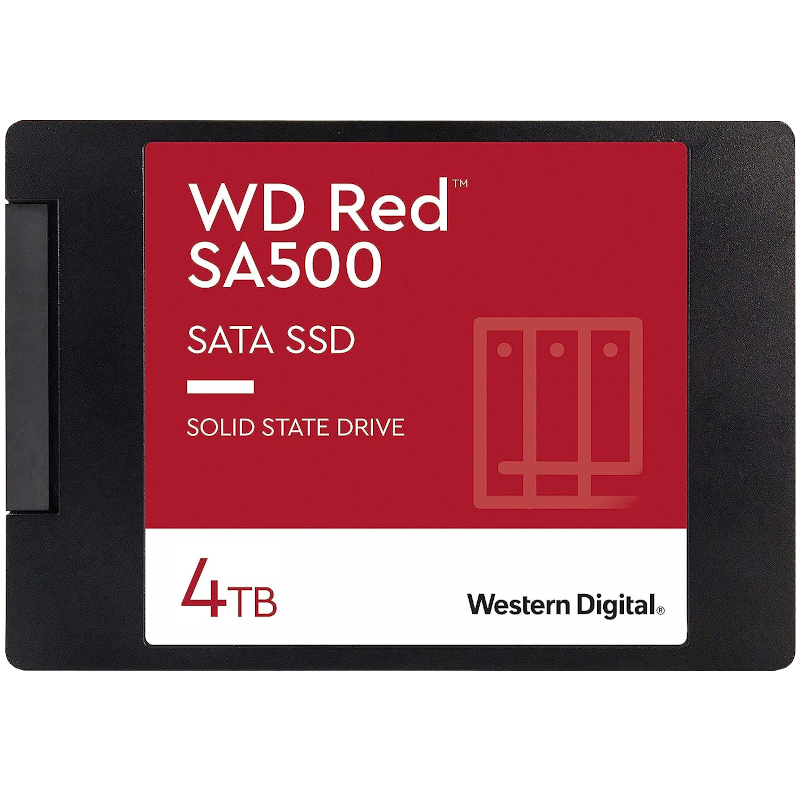
Source: WD
Western Digital Red SA500
Alternative best SSD for NAS
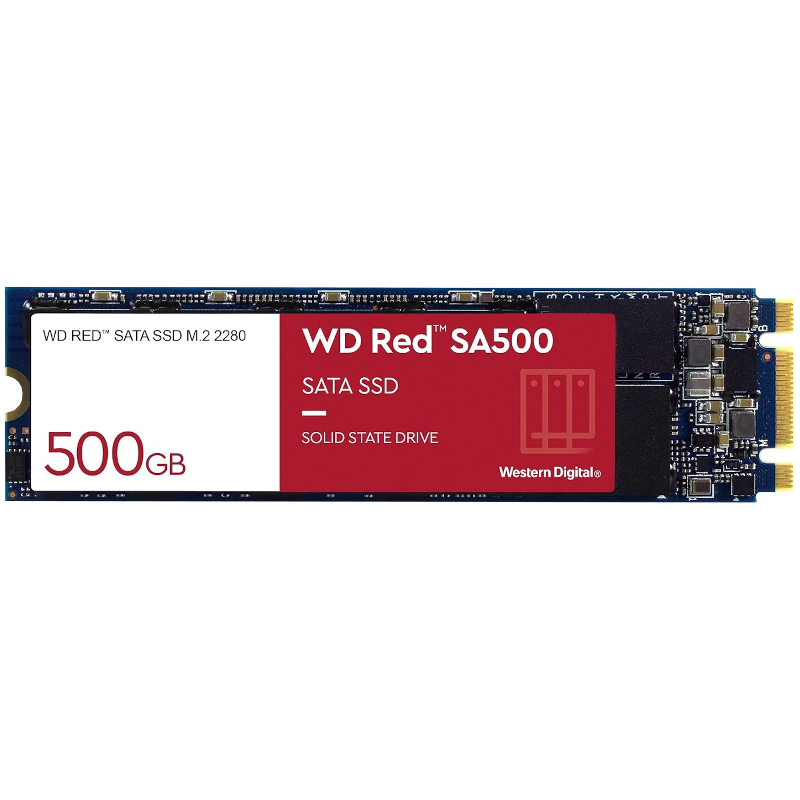
Source: Western Digital
Western Digital Red SA500 M.2
Best M.2 SATA NAS SSD
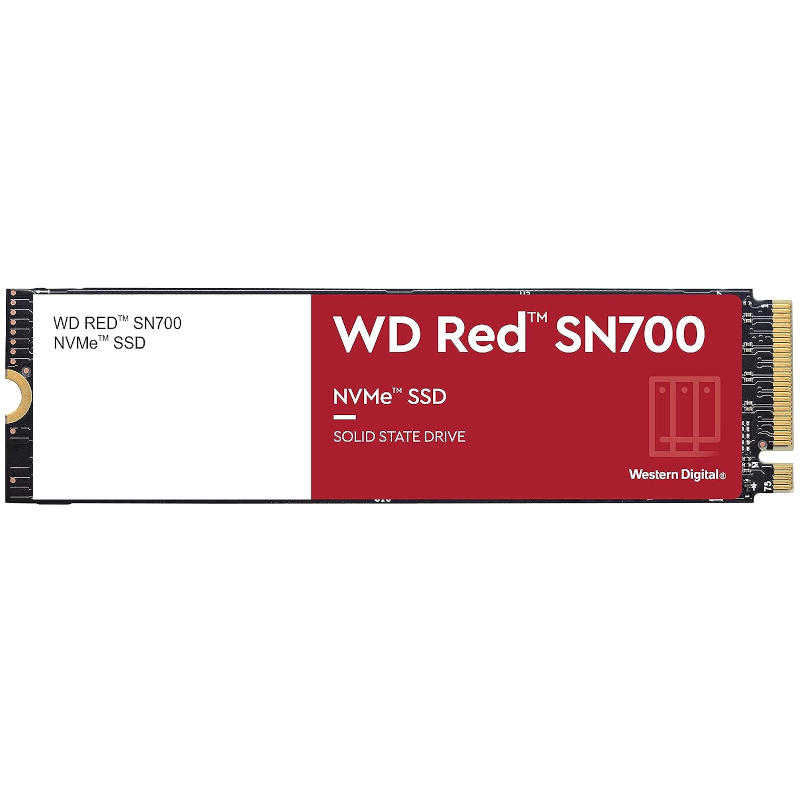
Source: Western Digital
Western Digital Red SN700
Best M.2 NVMe NAS SSD
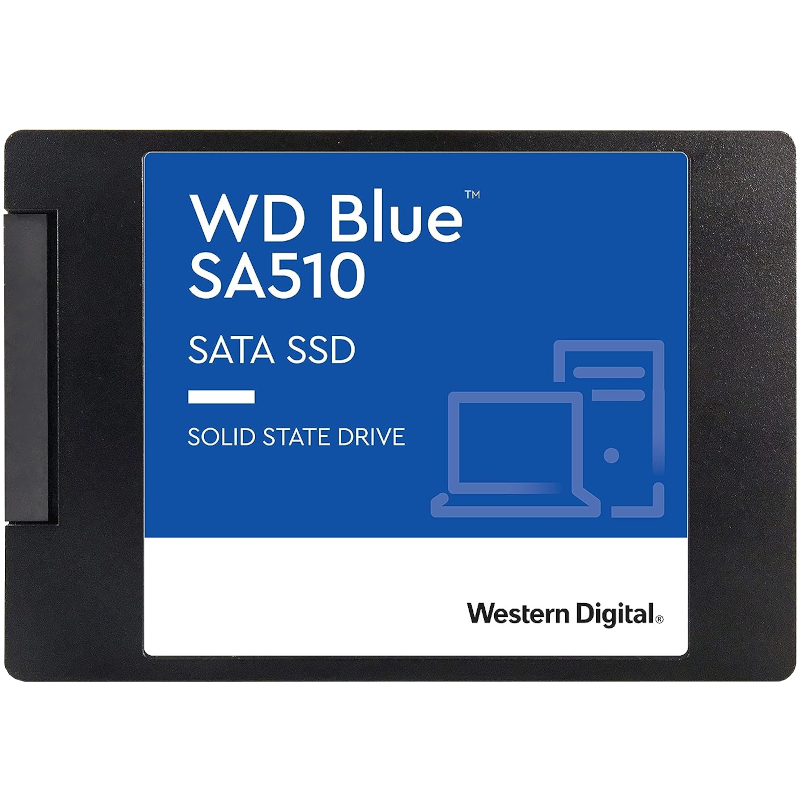
Source: WD
Western Digital Blue SSD
Best budget NAS SSD- See More
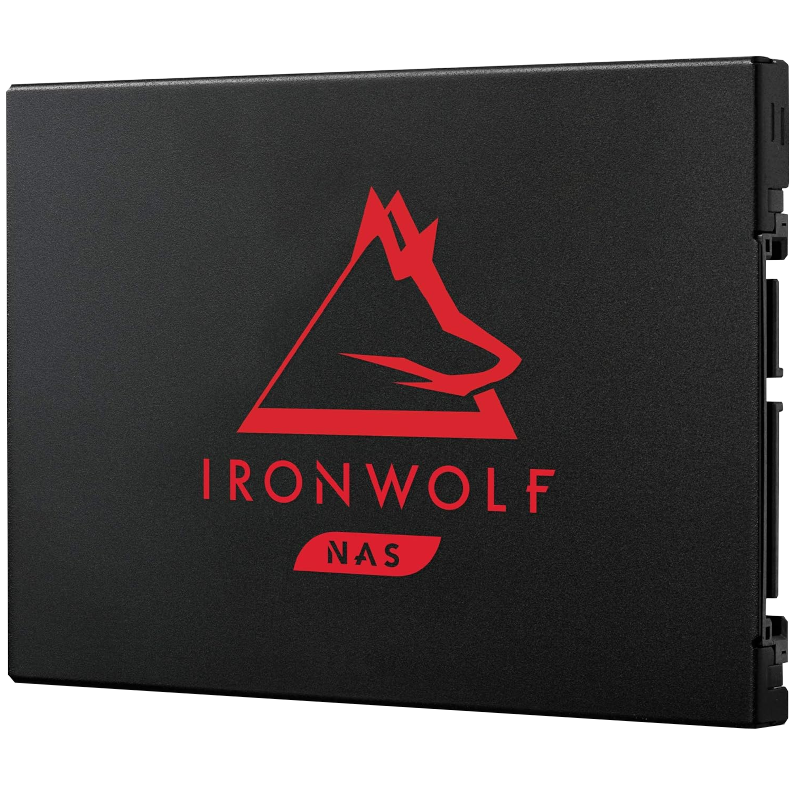
Seagate IronWolf 125
Best SSD for NAS
$0.3 per GB
Seagate’s IronWolf 125 range of SSDs is an excellent choice for NAS thanks to its wide array of capacities (for flash storage), performance, and endurance. These drives are designed for use inside NAS enclosures and would make for a great upgrade over HDDs.

Western Digital Red SA500
Alternative best SSD for NAS
$0.1 per GB
The Western Digital Red SA500 are specifically designed for use inside NAS enclosures. They offer better performance over mechanical HDDs and have no moving parts. This is a good choice if you want better performing connected storage.

Western Digital Red SA500 M.2
Best M.2 SATA NAS SSD
$0.1 per GB
$50 $80 Save
$30
The Western Digital Red SA500 M.2 is essentially an M.2 version of the same 2.-inch SATA SSD. It offers the same performance but is only available in 500GB, 1TB, and 2TB capacities.

Western Digital Red SN700
Best M.2 NVMe NAS SSD
$0.29 per GB
Western Digital’s Red SN700 SSDs are M.2 NVMe drives with speeds of up to 3,100MB/s. That’s a considerable performance boost over SATA SSDs with a maximum read speed of just 500MB/s. These are also great for NAS caching.

Western Digital Blue SSD
Best budget NAS SSD
$0.15 per GB
I wouldn’t typically recommend a desktop-class SSD like the Western Digital Blue for NAS usage, but if you don’t mind weaker endurance for heavier writing and fewer features, this is a great way to save money.
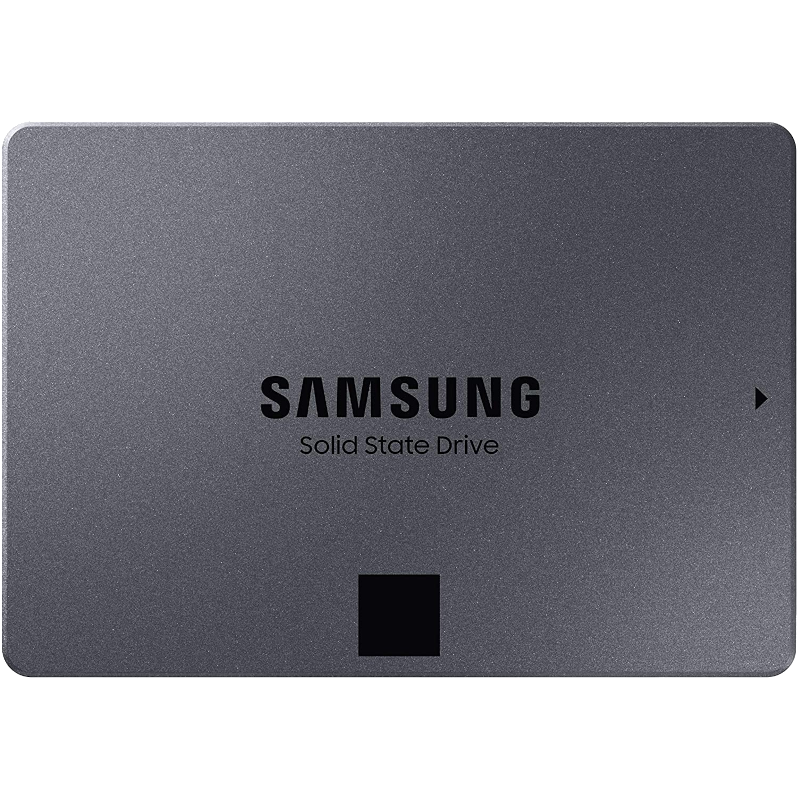
Samsung 870 QVO SATA III 2.5-inch SSD
Best value NAS SSD
$0.05 per GB
Another desktop-class SSD is the mighty Samsung 870 QVO. It’s great for storing lots of games on a gaming PC, but it’s also a good choice for starter NAS enclosures with good a price per GB.
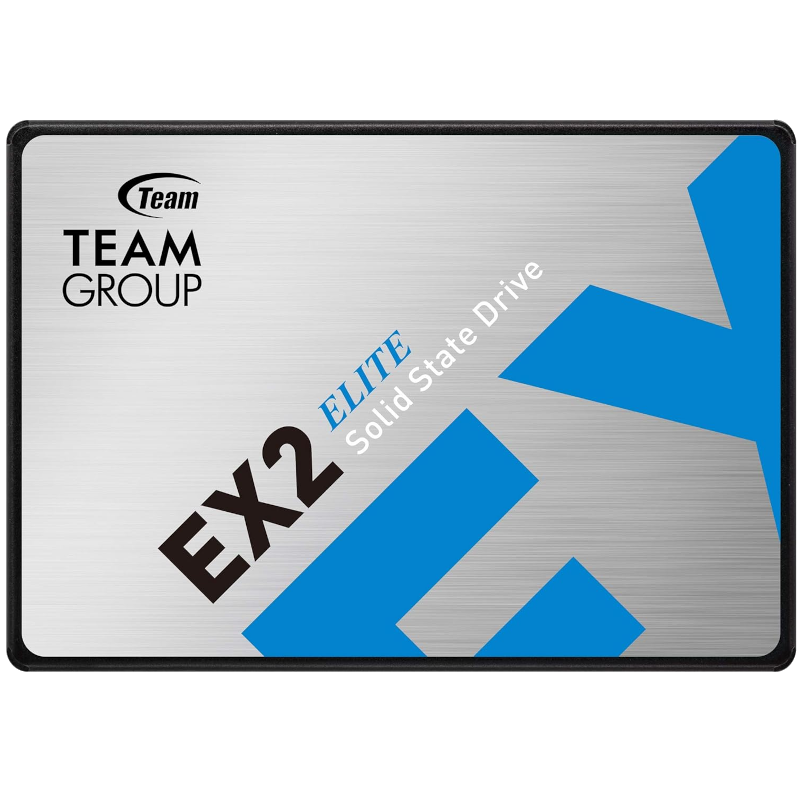
TeamGroup EX2
Best capacity NAS SSD
$0.11 per GB
TeamGroup’s impressive EX2 Elite range of SSDs are designed for use inside desktop and laptop PCs, but there’s the option for a 16TB drive. This surpasses waht’s available with specific NAS SSDs and thus we’d recommend this for maximum flash capacity.
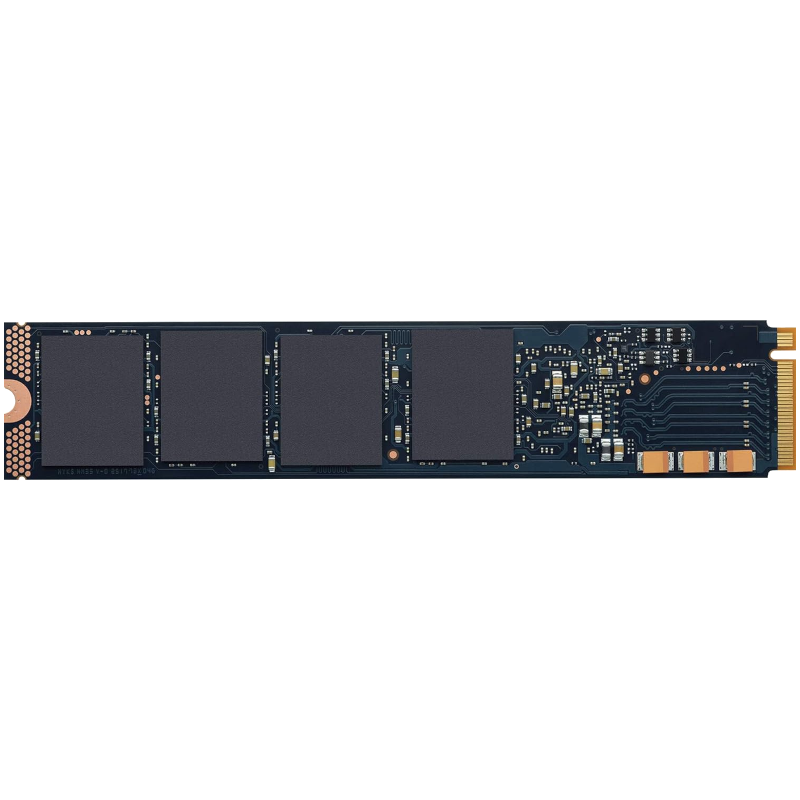
Intel Optane P4801X
Best NAS SSD for caching
$1.98 per GB
If you’re serious about working with big data and need a caching drive to improve system performance, look no further than the Intel Optane P4801X. It’s a reliable, heavy-duty SSD that packs a mighty punch.
Choosing the best SSD for NAS
Picking the right solid-state drive for your NAS largely comes down to how much data you have to store on the enclosure. SSDs designed for use inside NAS don’t have a vast choice of capacities to match NAS HDDs and often top out at 4TB. Desktop-class SSDs that are used inside PCs do support capacities of 8TB, but these aren’t certified for server usage and your mileage will vary depending on how much data will be written to the drive on a daily basis.
I’d recommend the Seagate IronWolf or Western Digital Red series of SSDs for NAS though these do cost a premium when compared against desktop-class SSDs from the same brands, Samsung, TeamGroup, among others. If you want the cheapest drive configuration, it’s possible to pick up smaller SSDs for as little as $30. TeamGroup does have a whopping 16TB 2.5-inch SSD available for just shy of $2,000 for maximum NAS capacity.
Intel’s Optane range of solid-state drives is great for caching data and other difficult scenarios. The performance of a NAS can be improved through the upgrading (and expansion) of system memory, but should that not be possible and M.2 slots are available, SSDs can be used for data caching. Kitting out your NAS with SSDs will not be a cheap endeavor, but my roundup of drives will ensure you’re buying the very best.
** (Disclaimer: This video content is intended for educational and informational purposes only) **
More...

